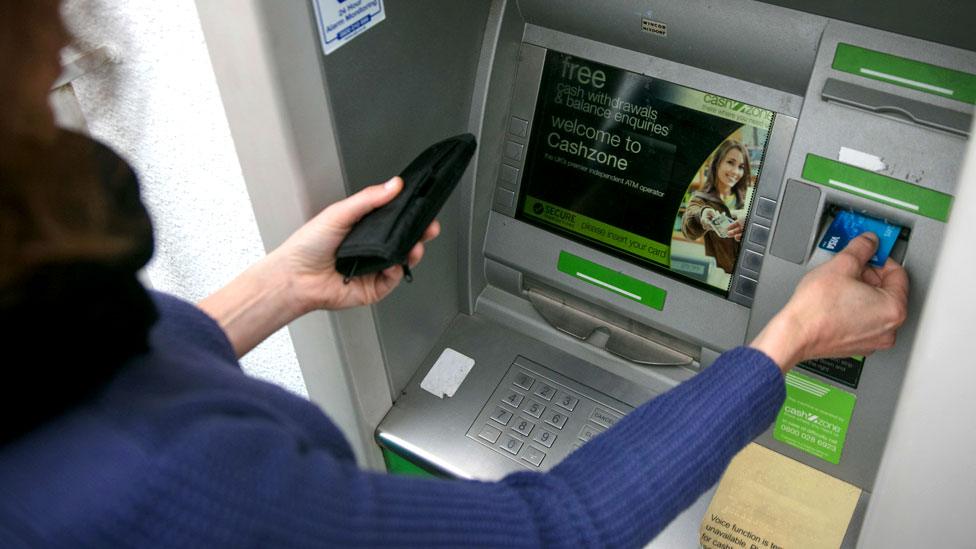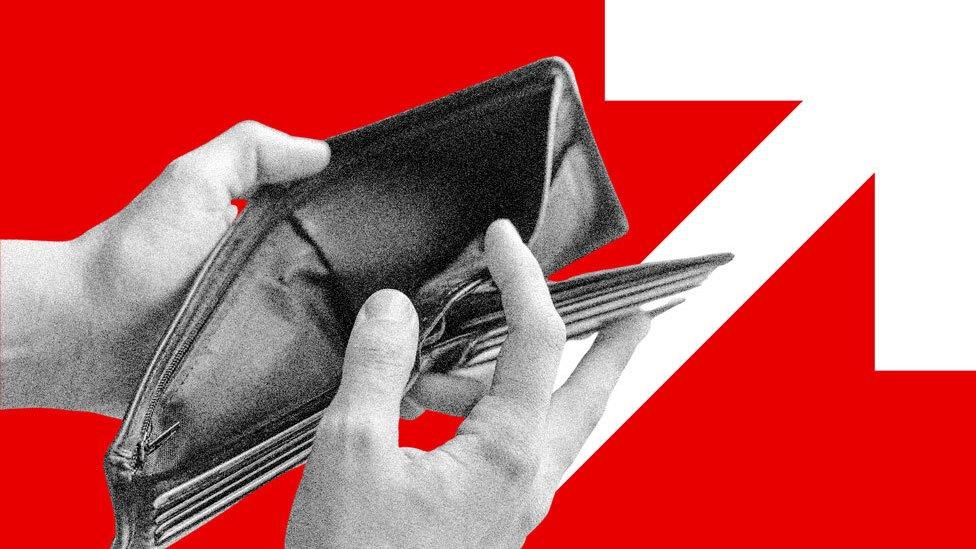Bank bosses told to explain low savings rates
- Published
- comments

Bank bosses have been summoned by the UK's financial watchdog over concerns interest rates on savings are too low.
Higher interest rates have led banks to put up mortgage costs sharply, but savings rates are not rising as fast.
Chancellor Jeremy Hunt says it is an "issue which needs solving", at a time when many households are struggling with the soaring cost of living.
The heads of Lloyds, HSBC, NatWest and Barclays banks will meet the Financial Conduct Authority (FCA) on Thursday.
The City watchdog will press the banks on their savings rates and on how they communicate with customers, according to the Financial Times, which first reported the meeting, external.
HSBC said it had increased its savings rates "more than a dozen times since the beginning of last year, with every savings product seeing rates increased on multiple occasions during that time".
Barclays declined to comment on the meeting, but said it "regularly" reviewed its savings rates.
Lloyds and NatWest have also been contacted by the BBC for comment.
In a tweet, external, the chancellor said: "@TheFCA has my full backing to ensure banks are passing on better rates as they should be."
Savings 'being destroyed'
The Bank of England has been steadily increasing UK interest rates since December 2021 as it tries to bring down soaring price rises.
Its base rate - which has a direct effect on mortgage and savings rates - is now 5%, up from close to zero 18 months ago.
The Bank is trying to make it more expensive for people to borrow money, and more worthwhile for them to save - the idea being that they will spend less and price increases will cool.
But while average mortgage rates have soared above 6% in recent weeks, returns on savings and current accounts have risen by a much smaller amount.
On Tuesday, the average rate for a two-year mortgage deal hit 6.47%, while the average easy access savings rate was 2.45%, a gap of 4.02 percentage points.
The average one-year fixed savings rate was 4.8%.
Iona Bain, a financial writer and broadcaster, told the BBC that if savings rates did not keep pace with inflation, then people's savings were effectively "being destroyed".
She added that banks had been offering poor savings rates since at least 2008, in the aftermath of the financial crisis.
Part of the problem was that the biggest High Street lenders effectively had a "monopoly", she said, even though challenger banks were slowly encouraging people to shop around.
"Current account switching has gone up but it is still very low," Ms Bain said. "But until the public vote with their feet nothing is going to change."
'Measly rates'
Speaking to the BBC's Today programme, Harriett Baldwin, chair of the Treasury Select Committee, said the committee had been putting pressure on the banks all year over the issue.
"We're quite sure these rates are measly and that the banks are not treating our constituents fairly," she said.
"We're particularly concerned about some of our older constituents who have savings, who are unable to use internet banking and find it difficult to switch," she added.
Banks' profits generally rise in line with interest rates, but lenders argue that savers have access to a host of competitive deals.
UK Finance, the trade body for the banking sector, has previously said saving and mortgage rates "aren't directly linked and therefore move at different times and by different amounts".
However, the chancellor has said banks are "taking too long" to pass on increases in interest rates to savers and has raised it with chief executives, who faced questions from MPs in February.
The FCA has said it will produce a report by the end of the month on how well the cash savings market is supporting savers.


Are you a bank saver? How do the rates of interest affect you? Email: haveyoursay@bbc.co.uk, external.
Please include a contact number if you are willing to speak to a BBC journalist. You can also get in touch in the following ways:
WhatsApp: +44 7756 165803, external
Tweet: @BBC_HaveYourSay, external
Or fill out the form below
Please read our terms & conditions and privacy policy
If you are reading this page and can't see the form you will need to visit the mobile version of the BBC website to submit your question or comment or you can email us at HaveYourSay@bbc.co.uk, external. Please include your name, age and location with any submission.
Related topics
- Published19 December 2024
